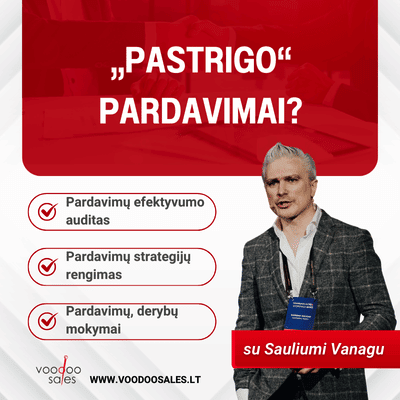HOW TO CREATE AN ATTRACTIVE CV?
5 years ago
Probably each of us has already created our own CV. Usually we need a resume when we decide to change jobs and have to submit / send it to a new potential employer or selection agency. And then the real headache begins..
There are many CV templates, but where are those real highlights? The CV is your business card and if it is not suitable - it is likely that no one will invite you to a job interview. So the main tips in this regard would be:
- Let's start with your photo. It is advisable to use it if you are sending a CV in Lithuania. If you are sending abroad, do not use it. The photo should be professional, with a shirt, suit and so on. In other words, not from nature or any party.
- Positions and previous position held. Start with those where you currently work. Describe them in detail. What you do, what team you have (if you are a leader), what you are responsible for, what competencies you use to do this job, what you have learned / improved. Finally, what your accomplishments are in that and how you have contributed to the value creation of the company. Sounds like a challenge, right? But if you want to sell your time to a new employer - don’t waste time describing it in a few professional sentences. You should do this with every position where you have worked.
- Do not write study times or immediately after study positions that have nothing to do with your current job and situations (well, unless they relate to or are the only positions you have worked so far).
- Do not rub intermediate positions. It’s very unprofessional and finally, sooner or later, employers find out about it. And when you find out - your working time can be calculated in the specific company where you got a job by lying.
- If you have the opportunity to present people who can recommend you - do so. The names of those people and how you had to communicate with them are enough. Phone numbers are available on request (for data protection).
- If you have other work activities on weekends, after work and so on and you don’t plan to give them up - it’s better to include them on your CV as not all potential employers like and tolerate it. This will save time both for yourself and for companies looking for employees.
- Don't be afraid to indicate specific preferences, if you have them: e.g. partial opportunity to work from home, salary, plus insurance services, plus company car and so on.
- If you have developed certain specific skills - write them - it can help you find a better paid or more suitable job.
- Don't be afraid to write down the values on which you work / live. Values are very important and if your values are radically ahead of those of a company or company manager, then you will not work for that company for long.
- Do not write the marital status, the number of children available, the exact residential address. This is redundant data that basically shows nothing but loads your CV with unnecessary information.
- A good CV should fit on two pages. If it is longer, you will probably not read it at all, which is bad, because you may not read exactly the part where your most important competencies and accents are.
- CV template. It should be modern, not overloaded with drawings or other "creative deviations". One option you can use is Lovejob templates.
- If the job advertisement is in Lithuanian - we recommend sending the CV in Lithuanian as well, as the person who published the advertisement and performing the initial selection may not understand the other language in which you will send your CV. However, if your ad is in a specific language or specifies the language in which you should submit your resume, you should clearly do so.
- Well, in the end. Don’t leave spelling and punctuation mistakes on your resume. They look very unprofessional and there is a good chance that some employers may not invite you for a job interview just because of mistakes.
So if you want to be invited to a job interview - take the time to create or update your CV. After all, an extra few hours can be something that will allow you to achieve better career results or earn more in the future. Remember, the investment pays off sooner or later. So the time invested in creating a CV will definitely pay off.

